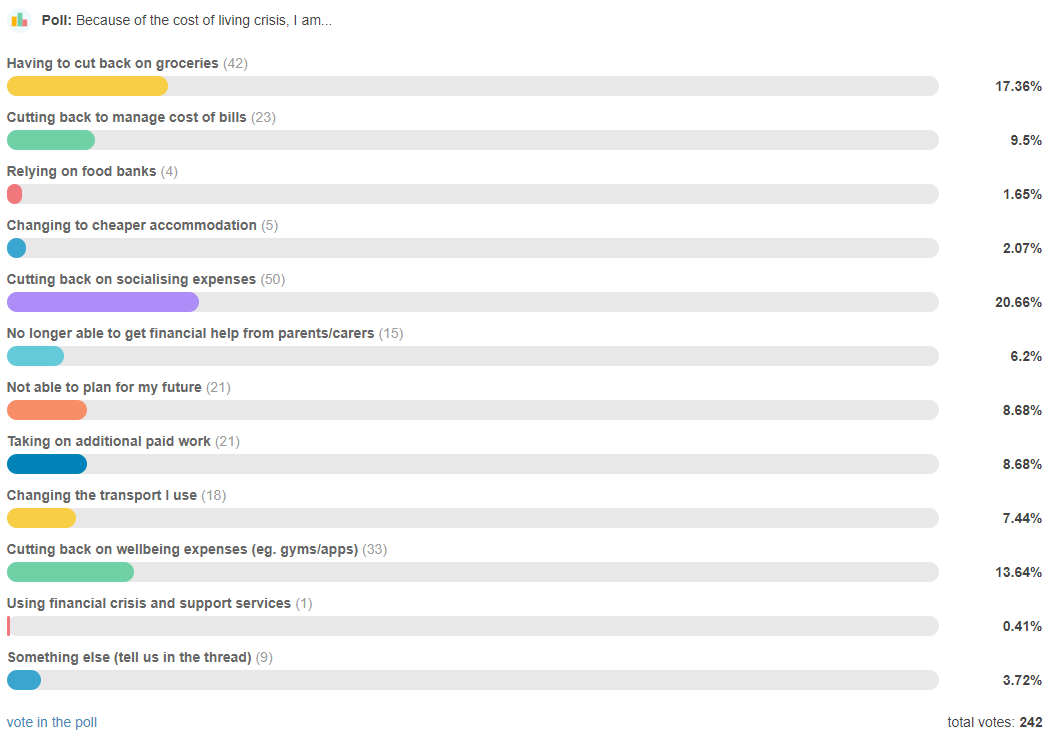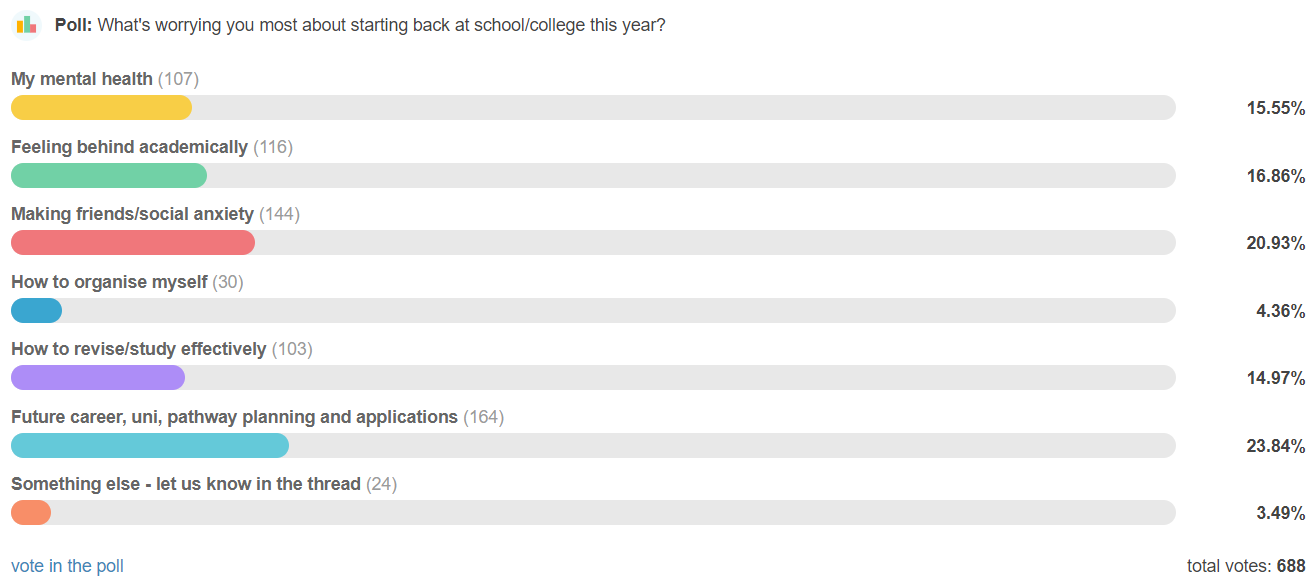Published September 2022
Belonging, at its heart, is about feeling safe. When you belong to a group, person, or place, you have some level of protection against threatening situations around you.
University applicants and current university students have each faced a staggering range of threatening situations – a pandemic, disrupted learning and grade uncertainty, a financial crisis, awareness of student accommodation issues, and the war in Ukraine among them. More than ever they need the support of their friends and peers when they get to university.
Sadly, since 1 September, the word “lonely” has been mentioned in The Student Room’s forum threads 450 times. But why is this a problem that universities should pay attention to? Read on to find out.
How a sense of not belonging affects students psychologically
In Maslow’s hierarchy of needs, belonging is our greatest priority after physiological survival (food, air, water, shelter) and safety (employment, financial security, resources). Maslow said that until we have sufficiently satisfied these bottom levels, we are unable to focus on activities that will promote self-esteem and self-actualisation (personal growth).
What this means is students need to feel connected to others, to belong, before they can grow to their full potential.
Think about the implications this has for student retention, academic performance and graduate career outcomes. If they do not feel connected, they will not fulfil their potential.
We also have to realise that a lot of prospective undergraduates are now sitting below even the safety level – their financial resources are threatened.
This comment from a parent shows how the cost of living crisis is affecting families and student recruitment:
“Having an income from both myself and my husband helps, but because of that, our daughters will not get the full student finance so we have to put towards it. Which is fine, but with the cost of living crisis, and their rent of their halls going up, and our own mortgage going up on top its not going to be easy. Will student finance go up…?
Low or no-income earners are being out-priced now because of the full student finance whack cant keep up with the cost of living. And what happens to students who need to get a job but cant? They have to drop out of uni? That’s unacceptable.”
At The Student Room, we want to understand the impact of domestic and global stressors on students, so we run regular polls and surveys.
The October poll below shows how the cost of living crisis is changing students’ behaviour and spending decisions. Look at the top response: cutting back on socialising expenses (21%).
What we are seeing is Maslow’s theory in action here, students are sacrificing belonging as a direct result of financial difficulties.
With so many students saying they will reduce socialising it’s clear that we could see more young people struggling with loneliness, isolation and poor mental health. Especially as they are also cutting back on other important well-being needs like gym memberships (14%) and food (17%).
Making friends is a top concern for students this academic year
In September we asked school-aged students what they were most concerned about:
Although the top concern was around planning their future (24%), more than one in five students (21%) said they were most worried about making friends and social anxiety, and a further 16% were worried about their mental health.
One student said that they had multiple concerns:
“Is “all of the above” an option? Because I personally am having issues with every single one of those lol.”

How can universities help applicants and students to feel a sense of belonging?
The Student Room recently hosted a webinar panel with representatives from the University of Leicester and the University of Liverpool about creating a sense of belonging in higher education. One of the key themes discussed was that belonging is about allowing students to be their authentic selves, rather than expecting them to change to fit into your university culture.
If you check out the webinar page, you’ll find some great strategies for fostering a sense of belonging in your students and applicants. For example, we cover the importance of signposting support resources, how to provide support on an individual basis, and how to adapt your communications to make students feel welcome.
These comments from our Uni Life forum during Welcome Week also shed light on factors which can contribute to student unhappiness. They signal some of the key areas where universities can focus support:
Connect | Making friends
“I am a mature student and will be commuting 40 mins each day. Therefore I will not be staying near my uni like most others. I’m so nervous about starting and not fitting in…”
“I’ve only been here for a couple of days but I’m feeling disheartened bc everyone else has a proper group of friends.”
“My flatmates aren’t my kind of people and I’ve not really made any proper mates yet…I’ve been out a few nights over freshers week and it’s been nothing special just huge queues and I’m not the biggest fan of clubbing, prefer chatting in pubs…I’m missing my job and mates from home, struggling to handle change.”
Support and Include | Mental health and neurodiversity needs
“I moved into uni last Sunday and I spent the whole time crying and wanting to come home so I spoke with the disability service and we decided that I should take a year out (I’m autistic and have anxiety and depression). I had constant panic attacks about sharing the kitchen and ended up not eating for the week whilst there.”
Connect | Feeling cut off from loved ones due to travel costs
“I know it’s too early to tell whether I like this uni experience already, but it’s more of a gut feeling and that fact I thought about problems that might occur like being restricted by money (can’t go home when I want because train tickets are high).“
Autonomy and Support | Worrying about being judged for lacking life skills
“I have a worry about cooking in uni. Do your flatmates already know how to cook when you get into uni? And do other people watch you when you cook? What if they laugh at you when it goes wrong and you just embarrass yourself in front of them?”
Want more insight into belonging or students’ needs?
To find out more about how students are feeling, subscribe to our mailing list. We will let you know when new student sentiment decks and student research is available.
You can catch up on our sense of belonging webinar, which provides great strategies for university student recruitment teams.
You might also be interested in this belonging research report by WonkHE and Pearson.
Call 0800 999 3222 to speak to our team – we can do bespoke research for you, like this project for Nottingham Trent University on the impact of motivational messaging on A-level students.



